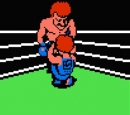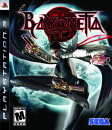http://electronictheatre.co.uk/index.php/articles/3743-electronic-theatre-import-review-final-fantasy-xi
Launched yesterday in Japan and arriving across Europe and North America in March 2010, Final Fantasy XIII is undoubtedly one of the most anticipated releases on the current-generation of home consoles so far. Originally announced at the Electronic Entertainment Expo (E3) in 2006, Final Fantasy XIII was initially revealed to be a PlayStation 3 exclusive release. However, many of Electronic Theatre’s regulars may remember our predictions as far back as that original unveiling that the increased cost of developing for current-generation systems and the continued success of the Xbox 360 in the US and UK would result in a multi-format release, a belief that has since come to fruition. For eastern gamers though, Final Fantasy XIII remains a PlayStation 3 exclusive.
“System-seller” is a phrase that’s bounded about far too often these days, when really only a handful of titles could ever make such a claim. Gears of War may have been the first true title to push hardware sales for the Xbox 360, with Wii Sports showing many consumers that Electronic Theatre ImageNintendo’s Wii has a lot to offer those who are less likely to associate themselves with videogaming as a hobby. Halo 3, Grand Theft Auto IV, KillZone 2 and Call of Duty: Modern Warfare 2 could certainly make such a claim, but the likes of Mass Effect, Assassin’s Creed II and Uncharted 2: Drake’s Fortune, for all their respectable qualities and indisputably progressive gameplay, are most certainly titles that appeal to an already knowing fanbase. Final Fantasy XIII, however, is possibly the greatest argument for such a label yet produced for the PlayStation 3 and Xbox 360. With the fans hanging on every rumour and titbit to have come from Square Enix since 2006, and a more mainstream audience readily taking on-board previews and examination articles for almost as long, Final Fantasy XIII has earned its’ reputation as one of the most anticipated titles on the current-generation. But with that anticipation breeds expectation, of course, and the fans of the Final Fantasy series are widely known for being particularly vocal with their opinions.
Thankfully, Square Enix has suitably taken this expectation on-board, and delivered one of the most addictive videogame experiences ever created. Cast as Lightning, a former soldier of the Cocoon military, the player will meet one of the largest selections of memorable characters ever seen in a videogame. Regardless of language barriers, each of the game’s stars’ personalities shines through by way of their actions, facial expressions and body language. Plot advancement is handled through a combination of cut-scenes and in-game story telling, and even lesser, almost inconsequential characters are defined as individuals in a densely populated world. Even before taking into account the addictive nature of the gameplay, Square Enix has achieved a more than commendable feat in videogame engineering through the creation of such an intriguing and complex world, capable of ensuring suspension-of-disbelief for more than a few hours. Final Fantasy XIII marks the attainment of new milestones in creating believable virtual societies.
Though Electronic Theatre would be reluctant to reveal any plot details in this review so far ahead of the European launch, it must be said that we’d have Electronic Theatre Imagedifficulty in doing so in any case. With the Japanese release, unsurprisingly, containing only Japanese text and voice acting, and our available translation being of inconsistent quality, deciphering the storyline would be just as demanding an exercise as completing the incredibly lengthy game itself. That said, bar a few errors in which the lack of interpretable events saw a number of hours wasted in searching for the correct path to take, the game is far from incomprehensible to those not fluent in Japanese. Progress was slow and numerous events occur without any discernable forewarning (though, many may of course had been pre-empted within the story line), yet exploration of new areas and continuation of the adventure remain compulsive.
Unsurprisingly for such a vast game, many different locations are visited featuring very different environments, and each is as meticulously detailed as the last. There’s the occasional fumbling into deep Science-Fiction convention and bland industrialisation, but even these areas contain more character than the entire structure of any number of First-Person Shooter (FPS) releases. Where Pulse’s fal’Cie lie is a densely cluttered series of gangways and steel work; a distinct contrast to the beauty of the exterior world or the striking ruins of Mount Yaschas. The Phantasy Star Online inspired colour scheme in Nautilus pleasantly ends a chapter, and as would be expected, each location has distinctive qualities in their inhabitants, as well as the enemies they present.
A truly mixed batch of all kinds of demonic and frenzied beings imaginable, Final Fantasy XIII’s enemies are visible throughout the world at all times. However, unlike Final Fantasy XII, the fights are cut-away experiences. The combat uses a renovation of the Electronic Theatre ImageActive Time Battle system, in which players command a party of up to three characters taking direct control of one at any time. Direct control, of course, in that as far as Final Fantasy has ever been. Combat is negotiated as a series of manoeuvres selected from a menu, and finding the right combination of turn-to-turn schemes for single-character and strategic use of the entire party is key to success. Players can input multiple commands per turn forming combos (with the number allowed growing as the character gains experience) and receive significant attack bonuses, even dazing an enemy through high level combos known as “break attacks”. The combos are limited by way of a points cost for each available command, each taking from the pool available in that turn. The new Optima Change mechanic (to be known as the Paradigm Shift in the European release) is the finest addition to the Active Time Battle formula Final Fantasy XIII offers, allowing the party to change roles mid-battle. This, combined with the ability to line-up successions of moves, creates fights of a swift tempo with player’s strategies changing at a moments’ notice.
Final Fantasy’s “Summons” feature has been a big part of the series since the incredible success of Final Fantasy VII propelled the series into mainstream culture. They had of course featured in earlier titles, but were never given the same level of impetus previously. Here, they return under the name Eidolons. Each character has only one Eidolon, which when summoned will either replace or, through the new “Driving Mode”, work with the character throughout the battle. The favourites Odin, Shiva and Bahamut return, presented with new guises as is the tradition.
Final Fantasy XIII features a revision of the traditional Role-Playing Game (RPG) levelling system, although refuses to describe it as such, modelled on that seen in Electronic Theatre ImageFinal Fantasy X. The players will still earn new abilities and increased stats through combat in the newly titled “Crystarium System”, though the implementation of the fruits of your labour is slightly different. Instead of gaining experience points through battles, characters gain Crystarium Points which can then be spent on abilities and increased attributes. The refinement of the system is minor at best, but many would argue that Square Enix would be wrong to tamper with such an important aspect of the game when it’s far from broken in the first place. The hunt for new items and hours of level-grinding in pursuit of greater abilities is as addictive here as it ever was, and with the varied up-tempo combat rarely missing a beat, the hours spent in battle will rarely feel wasted.
While the game is undeniably a success in near-every respect, there are a few minor niggles. There appears to be somewhat of an oddly paced exploration sequence midway through the game, and though only a small irritation, a few areas are poorly measured in terms of the resistance provided, which may have been a consideration for newcomers when developing the option to restart botched battles. On occasion the game chooses to deliver so much information at once that the screen layout proves itself to be rather cumbersome, and it’s likely that newcomers to the series will frequently find themselves near-overwhelmed within the first few hours.
The technical quality of Final Fantasy XIII is simply astounding. For all of its’ fifty-or-so hour main plotline, there are very few moments when the visual and aural superiority fails to astound. While the characters retain Final Fantasy’s typical cartoon-fresh appearance, their animation and relationship with the environment results in some of the most lifelike figures to ever appear in videogames. The soundtrack has been composed by Masashi Hamauzu, the composer for Final Fantasy X as well as Dirge of Cerberus - Final Fantasy VII-, and provides enough sweeping orchestral movements to warrant the expected CD release.
Final Fantasy XIII has been a long time coming, and the anticipation is becoming more palpable with every month. Thankfully then, Square Enix has delivered a stunning videogame experience worthy of such attention, and one that’s likely to be commanding of much more as the western release approaches. Many have cried the death of the Japanese RPG within recent years - a belief that many more lament – but if Final Fantasy XIII proves anything, it’s that there’s still plenty of life in the well explored formula. Final Fantasy XIII is a blockbuster in every sense, and upon it’s western release early next year is almost certain to earn itself that reputation as a system-seller.
**Please Note: The version of Final Fantasy XIII available to Electronic Theatre was a retail copy of the Japanese release, and therefore did not contain any English language translation. As a team comprised solely of English-speaking journalists, we feel it would be inappropriate to apply a score to the game when the experience has not been as intended. Electronic Theatre will keep you updated with all the latest on Final Fantasy XIII, including an in-depth review of the English language release as soon as it's available.




















